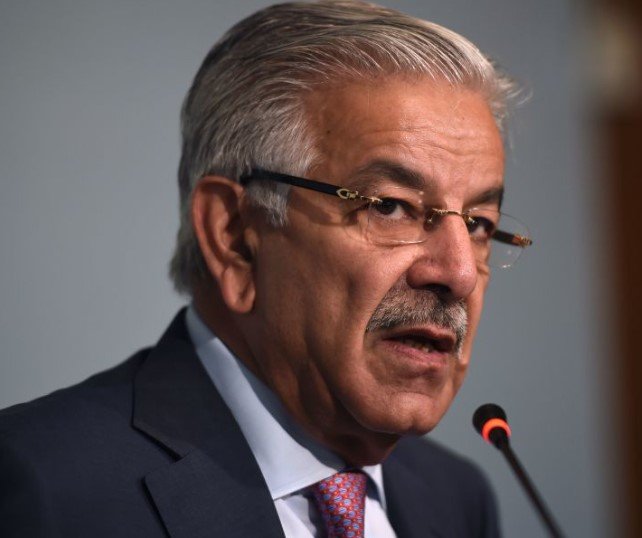In the wake of the devastating Pahalgam terror attack, which left 26 dead, Pakistan’s Defence Minister Khawaja Muhammad Asif has warned that a military incursion by India is imminent. Tensions are running high between the two nuclear-armed neighbors, with both sides reinforcing their military positions.
Pakistan’s Defence Minister Issues Stark Warning
On April 28, 2025, Pakistan’s Defence Minister Khawaja Muhammad Asif told Reuters that Pakistan had reinforced its military forces in response to what he termed an “imminent” threat of an Indian military incursion following the Pahalgam terror attack. The attack, which killed 26 people and injured several others, has escalated hostilities between the two nations.
“We have reinforced our forces because it is something which is imminent now,” Asif said, referring to the potential for military action. He added that strategic decisions had been made in light of the rising tensions. “In that situation, some strategic decisions have to be taken, so those decisions have been taken,” he explained. This statement follows widespread accusations in India linking the attack to Pakistani-backed terror groups.
India Seeks Accountability, NIA Investigates Attack
The National Investigation Agency (NIA) has swiftly taken over the investigation into the Pahalgam terror attack, which many believe was carried out by Pakistani-based militants. NIA officials visited the home of Bharath Bhushan, one of the victims of the attack, to gather crucial information. Bhushan, who was killed by the terrorists, was reportedly targeted while visiting the popular tourist town in Kashmir.
At his home in Mathikere, NIA officials spoke to Bhushan’s wife, Dr. Sujatha, and recorded her statement. They inquired about the events leading up to the attack and any interactions Bhushan’s wife might have had with the attackers. “What did the terrorists say? How did they behave?” were just a few of the questions posed during the inquiry. These efforts are part of a broader push to gather evidence and identify those responsible for the deadly assault.

India and Pakistan on Edge
As the investigation progresses, India has called for immediate action against those involved in the attack, citing “cross-border linkages” to terrorism. There are growing demands for accountability from Pakistan, which has long been accused of harboring and supporting militant groups targeting Indian soil.
In an emotional response, India’s Congress President Mallikarjun Kharge and Leader of Opposition Rahul Gandhi have written to Prime Minister Narendra Modi, urging him to convene a special session of Parliament to discuss the Pahalgam attack. The request reflects the widespread outrage across India, where the attack is seen as a stark reminder of the ongoing cross-border terrorism from Pakistan.
Solidarity and Global Response to the Attack
International reaction to the attack has been swift, with many countries expressing strong support for India’s stance on terrorism. India’s Deputy Permanent Representative to the U.N., Ambassador Yojna Patel, spoke on behalf of the Indian government, emphasizing that the global community’s solidarity following the attack sends a clear message of zero tolerance for terrorism.
“The Pahalgam terrorist attack represents the largest number of civilian casualties since the horrific 26/11 Mumbai attacks in 2008,” Patel remarked in a statement. The terror attack has intensified India’s call for stronger global efforts to combat terrorism, especially from cross-border sources. As India prepares for potential military escalation, the international community continues to back its position.
Pakistan’s Ceasefire Violations Heighten Fears
As tensions mount, the Pakistan Army has violated the ceasefire agreement on multiple occasions. On the night of April 28-29, 2025, the Pakistan Army resorted to unprovoked small arms firing across the Line of Control in several areas, including the Kupwara and Baramulla districts, as well as the Akhnoor sector. The Indian Army has responded in a “measured and effective” manner, according to Indian military officials.
These ceasefire violations only serve to escalate the already tense situation between India and Pakistan. Both nations are on high alert, with the possibility of further military conflict looming large. India’s military preparedness and defensive posture have been significantly bolstered, with reports indicating heightened readiness to respond to any provocation from Pakistan.
Growing Calls for Action Amid the Crisis
The Pahalgam terror attack and the subsequent political fallout have left India’s leadership grappling with an urgent need for decisive action. The country’s political figures, including the opposition, have rallied behind a unified stance demanding justice for the victims of the attack. The government’s call for punitive measures against Pakistan and its alleged support for terrorism remains a central theme of the ongoing debate.
The response to the attack, both domestically and internationally, underscores the broader implications of terrorism in the region. India’s government has reiterated its commitment to addressing terrorism head-on, emphasizing that it will not tolerate attacks on its soil.
